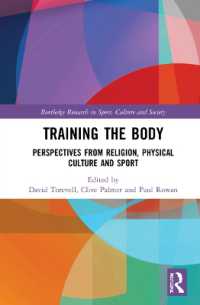Full Description
A Poetry Book Society Special Commendation Autumn 2022.
[To] The Last [Be] Human collects four extraordinary poetry books—Sea Change, PLACE, fast, and Runaway—by Pulitzer Prize winner Jorie Graham.
From the introduction by Robert Macfarlane:
The earliest of the poems in this tetralogy were written at 373 parts per million of atmospheric CO2, and the most recent at 414 parts per million; that is to say, in the old calendar, 2002 and 2020 respectively. The body of work gathered here stands as an extraordinary lyric record of those eighteen calamitous years: a glittering, teeming Anthropocene journal, rife with hope and raw with loss, lush and sparse, hard to parse and hugely powerful to experience. Graham's poems are turned to face our planet's deep-time future, and their shadows are cast by the long light of the will-have-been. But they are made of more durable materials than granite and concrete, and their tasks are of record as well as warning: to preserve what it has felt like to be a human in these accelerated years when "the future / takes shape / too quickly", when we are entering "a time / beyond belief". They know, these poems, and what they tell is precise to their form... Sometimes they are made of ragged, hurting, hurtling, and body-fleeing language; other times they celebrate the sheer, shocking, heart-stopping gift of the given world, seeing light, tree, sea, skin, and star as a "whirling robe humming with firstness".
To read these four twenty-first-century books together in a single volume is to experience vastly complex patterns forming and reforming in mind, eye, and ear. These poems sing within themselves, between one another, and across collections, and the song that joins them all is uttered simply in the first lines of the last poem of the last book:
The earth said
remember me.
The earth said
don't let go,
said it one day
when I was
accidentally
listening








